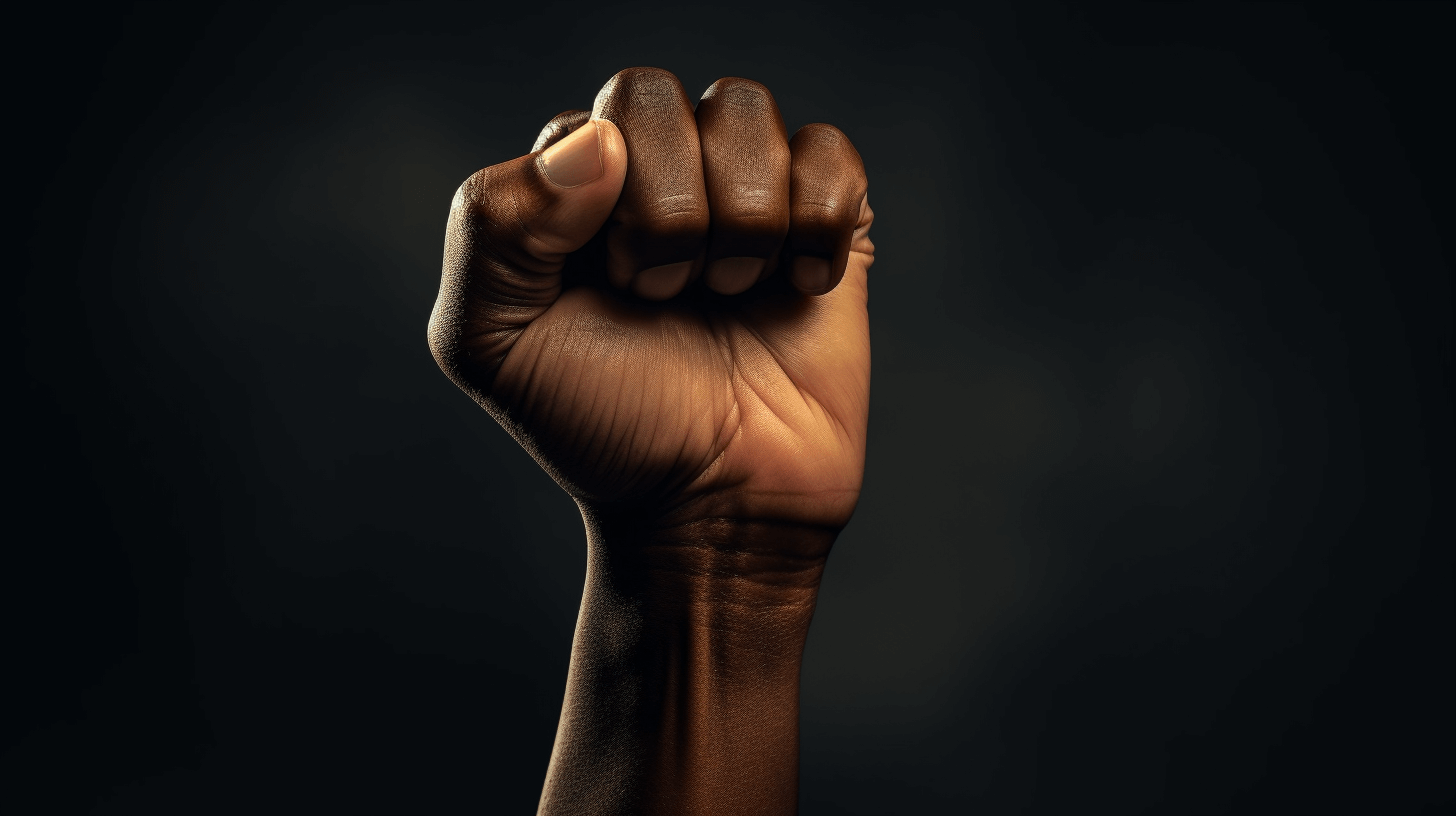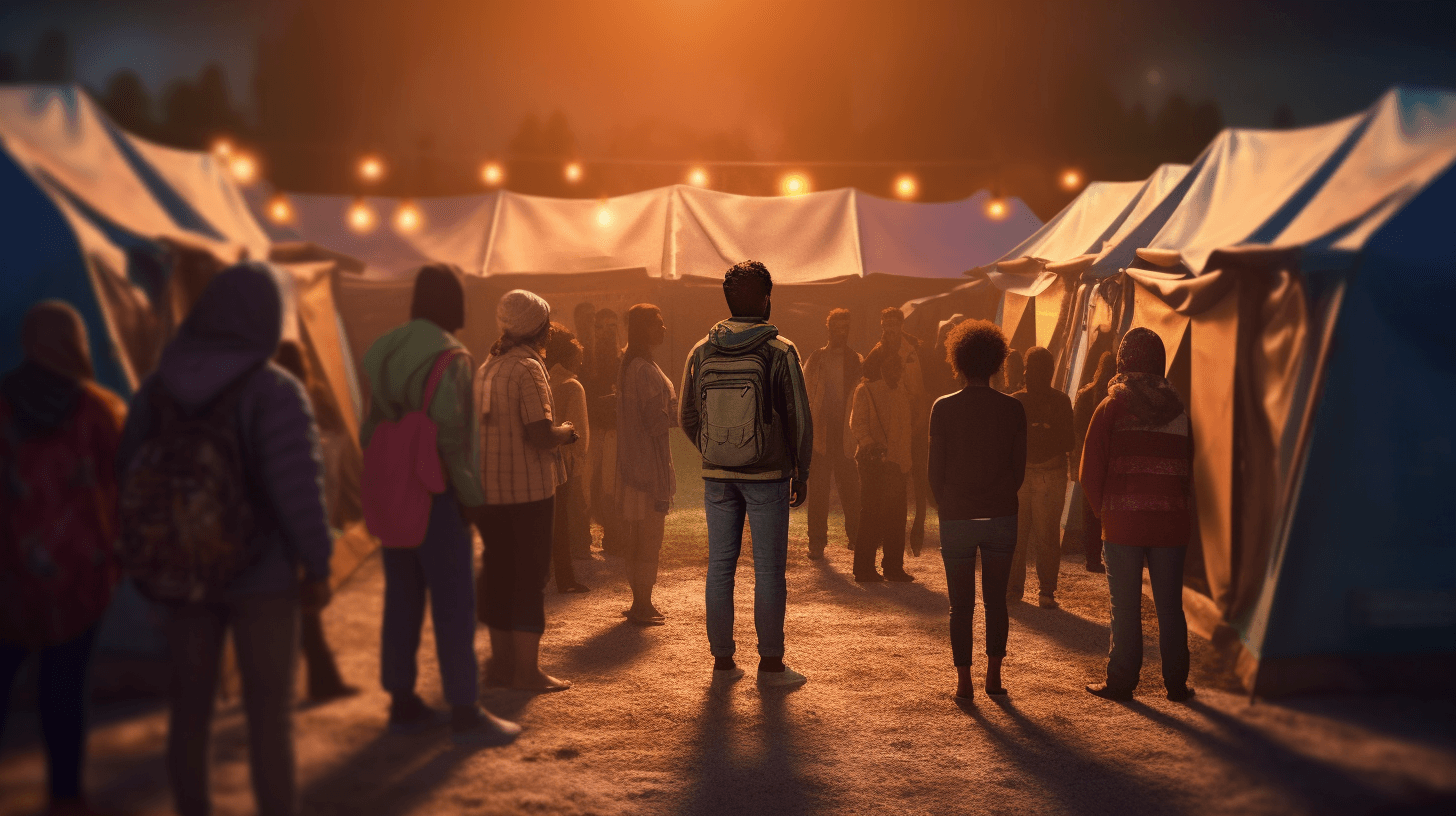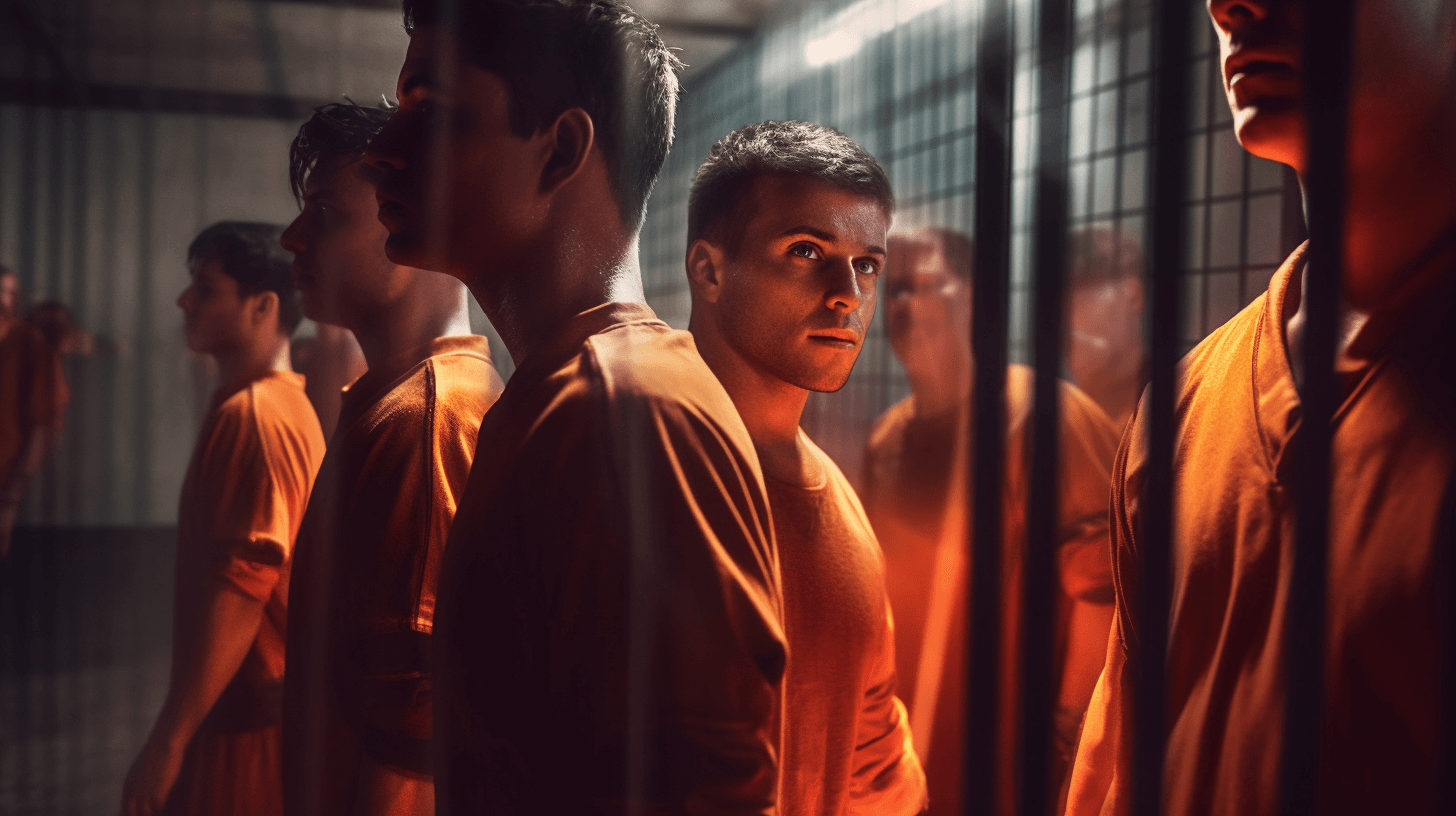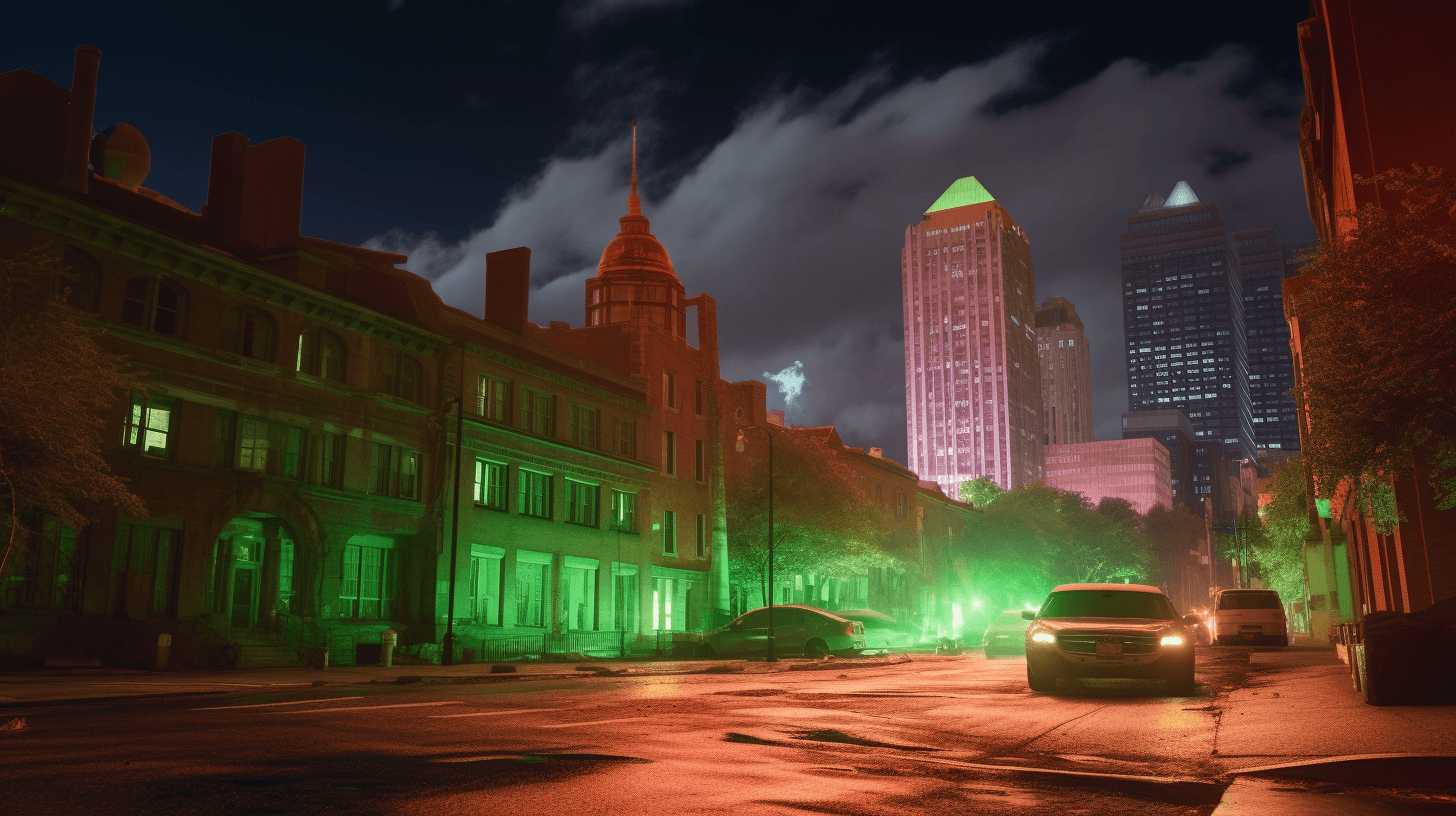🌺🤙 Pōloli Tribe Arrest Two Black Bruddahs, Only One Get Called Indian by Da Law 🚓🖐️🤷♂️
🌺🤙 Pōloli Tribe Arrest Two Black Bruddahs, Only One Get Called Indian by Da Law 🚓🖐️🤷♂️
Early one morning in September 2020, Michael J. Hill called da 🚔 after hearing banging on da doors and windows of his home in Okmulgee, Okla. — part of a swath of da state dat da Supreme Court had recently ruled to be tribal land.
He eventually realized it was a group of his friends, Mr. Hill later recalled in an interview, but da 🚔 had arrived and proceeded to arrest one of dem, Aaron R. Wilson, for an outstanding warrant. Mr. Hill, 40, den got into an altercation with da 🚔 and was himself arrested after a struggle.
Mr. Hill 🤷♂️ and Mr. Wilson 🤙 stay both Black and citizens of Native American tribes in Oklahoma. Dey both moved to have dea cases dismissed, arguing dat as tribal members in tribal territory, dey was outside da state’s criminal jurisdiction. Mr. Wilson’s case was dismissed, but Mr. Hill’s request was denied.
Da key difference in da fate of da two men was race — specifically, a small degree of what is known in da courts as “Indian blood.” Mr. Wilson is one sixty-fourth Creek Indian. Mr. Hill is a citizen of da Cherokee Nation through ancestors called Freedmen — Black people who was enslaved by Native tribes. Cuz Mr. Hill’s ancestors did not have Indian blood, he was found in court not to be Indian.
“He’s one member of da Cherokee Nation,” Phillip Peak, Mr. Hill’s lawyer, said in court arguments. “Yet when he steps in dis courtroom, all of a sudden he’s not.”
Mr. Hill 🤷♂️ stay one of several present-day Freedmen, as dey are known for dea ancestry, who stay caught in da middle of one feud between da State of Oklahoma and tribal nations after da Supreme Court ruled in 2020 dat much of eastern Oklahoma falls within an Indian reservation. Dey dilemma stems from federal court rulings dat define what it means to be considered Indian in da eyes of da criminal justice system.
After da Supreme Court’s decision in da case, McGirt v. Oklahoma, hundreds of people successfully had dea criminal cases in state courts dismissed, as da ruling prevents state authorities from prosecuting offenses committed by Native Americans on tribal land. Instead, dose offenses can now be prosecuted only by tribal and federal authorities.
But state prosecutors stay fight to continue pursuing some criminal cases involving Freedmen in tribal territory. In several cases reviewed by Da New York Times, judges rejected arguments by Freedmen dat dey was outside da state’s criminal jurisdiction, ruling dat da defendants did not meet da legal definition to be considered Indian.
Oklahoma’s highest criminal court sided wit da state in one of dose cases, paving da way for state prosecutors to continue bringing cases against Freedmen who stay tribal citizens but have no Indian blood.🚓🖐️🤷♂️
Da state’s continued prosecution of Freedmen amounts to one new chapter in dea long struggle to receive all da rights of tribal citizenship. Some Freedmen neva even allowed to become tribal citizens, cuz a handful of tribes exclude dem from membership.
Dey being treated differently than other members of da tribe based solely on dea race, Matthew J. Ballard, one district attorney in northeast Oklahoma and da chair of da state’s District Attorneys Council, said of da prosecution of Freedmen in state court. Freedmen who want to be considered Indian in court have “a nearly impossible burden” to meet, he said.
Da State of Oklahoma argues dat da McGirt decision has created an unequal legal system where tribal citizens get special privileges. State officials have said dat crimes dat fall under tribal jurisdiction go unaddressed and have highlighted cases of convicted criminals being released as a result of da ruling.
In 2021, Oklahoma went as far as to ask da Supreme Court to overrule its own decision. Last year, da court instead narrowed da ruling, allowing state authorities to prosecute non-Indians who commit crimes against Indians on tribal land.
Tribal nations stay saying dat state officials have at times refused to cooperate wit dea courts and police officers, and dat working relationships wit state agencies have soured after da McGirt ruling.
Tribal nations in Oklahoma have criminal justice systems dat are generally less punitive than da state’s. Federal law limits sentencing in tribal courts for any criminal charge to three years and a $15,000 fine, and major crimes dat occur in tribal territory are prosecuted in federal court. Many tribal courts also promote sentencing dat emphasizes treatment programs for drug and alcohol use and mental illness.
“People ask, ‘Well, what’s da difference between you prosecuting dis and da state?'” said Kara Bacon, da lead tribal prosecutor in da Choctaw Nation. “From a cultural perspective and from a member perspective, we understand dat rehabilitation is important.”
Caught up in da dispute are da Freedmen, da descendants of Black people who was enslaved by Native tribes. Many tribes allied demselves wit da Confederacy and fought to preserve da institution of slavery. After da Civil War, treaties between da federal government and da tribes abolished slavery and granted da Freedmen “all da rights” of citizens in da tribal nations.
But courts stay typically using one two-part test to determine who is legally considered to be Indian: whether da person is recognized as an Indian by one tribe or da federal government, and whether da individual has Indian blood. Most Freedmen, even if dey enrolled in one tribe, do not satisfy da blood requirement, meaning dey not recognized as legally Indian in court.🚓🤙
“Sometimes da state courts will say: ‘Well, even though you might meet Part A, you can’t meet Part B of dis test. Therefore, we not going to dismiss your case from da state courts,'” said Sara Hill, da attorney general for da Cherokee Nation.
It stay unclear how many Freedmen who are tribal citizens have been prosecuted in state court since da McGirt decision, cuz state officials have not specifically tracked dose cases.
However, state officials have said dat Freedmen make up a small fraction of da defendants in criminal cases in da affected areas. Critics argue dat continuing to prosecute dese cases undermines da tribal sovereignty and perpetuates one history of discrimination against da Freedmen.
Da issue of tribal membership and da recognition of da Freedmen’s rights has been one ongoing source of contention between da tribes and da federal government. Dere have been legal battles, protests, and political pressure to secure equal rights and recognition for da Freedmen.
In conclusion, da arrest and legal treatment of Black citizens who are also tribal members in Oklahoma, particularly da case of da Freedmen, has highlighted da complex interplay between race, tribal sovereignty, and da criminal justice system. While da McGirt ruling has affirmed tribal jurisdiction over criminal offenses committed by Native Americans on tribal land, da recognition of non-Indians who are tribal citizens, such as da Freedmen, in da state courts remains an unresolved issue. Dis has resulted in differing interpretations and challenges regarding da legal definition of being considered Indian and has led to ongoing legal battles and discussions about equal rights and discrimination.
NOW IN ENGLISH
🌺🤙 The Pōloli Tribe Arrested Two Black Brothers, Only One is Referred to as Indian by the Law 🚓🖐️🤷♂️
Early one morning in September 2020, Michael J. Hill contacted the police car 🚔 after hearing banging on the doors and windows of his home in Okmulgee, Oklahoma. He later realized it was a group of his friends, as Mr. Hill recalled in an interview. However, the police had already arrived and proceeded to arrest one of them, Aaron R. Wilson, due to an outstanding warrant. Mr. Hill, who was 40 years old at the time, then got into an altercation with the police and was subsequently arrested after a struggle.
Both Mr. Hill 🤷♂️ and Mr. Wilson 🤙 are African American individuals and citizens of Native American tribes in Oklahoma. They both argued for the dismissal of their cases, stating that as tribal members on tribal land, they fell outside the state’s criminal jurisdiction. Mr. Wilson’s case was dismissed, but Mr. Hill’s request was denied.
The crucial difference in the outcome for the two men was their race, specifically a small fraction of what the courts refer to as “Indian blood.” Mr. Wilson is one sixty-fourth Creek Indian, whereas Mr. Hill is a citizen of the Cherokee Nation through his ancestors known as Freedmen, who were Black people enslaved by Native tribes. Due to Mr. Hill’s ancestors lacking Indian blood, the court found him not to be recognized as Indian.
“He is a member of the Cherokee Nation,” stated Phillip Peak, Mr. Hill’s lawyer, during court arguments. “Yet when he steps into this courtroom, suddenly he is not.”
Mr. Hill 🤷♂️ is one of several present-day Freedmen, as they are known for their ancestry, who find themselves caught in the middle of a conflict between the State of Oklahoma and tribal nations following a Supreme Court ruling in 2020 that designated a significant portion of eastern Oklahoma as an Indian reservation. Their predicament stems from federal court rulings that define the criteria for being considered Indian within the criminal justice system.
After the Supreme Court’s decision in the McGirt v. Oklahoma case, many individuals successfully had their criminal cases dismissed in state courts since the ruling prevents state authorities from prosecuting offenses committed by Native Americans on tribal land. Consequently, these offenses can now only be prosecuted by tribal and federal authorities.
However, state prosecutors persist in pursuing certain criminal cases involving Freedmen on tribal land. In multiple cases reviewed by The New York Times, judges rejected arguments by Freedmen asserting that they were outside the state’s criminal jurisdiction, ruling that the defendants did not meet the legal definition to be considered Indian.
Oklahoma’s highest criminal court sided with the state in one of these cases, thereby allowing state prosecutors to continue bringing cases against Freedmen who are tribal citizens but lack Indian blood.🚓🖐️🤷♂️
The state’s continued prosecution of Freedmen represents a new chapter in their long struggle to obtain all the rights of tribal citizenship. Some Freedmen have not even been granted tribal citizenship, as a few tribes exclude them from membership.
They are being treated differently than other members of the tribe solely based on their race, as noted by Matthew J. Ballard, a district attorney in northeast Oklahoma and the chair of the state’s District Attorneys Council, regarding the prosecution of Freedmen in state court. Freedmen who wish to be recognized as Indian in court face “a nearly impossible burden” to meet, he added.
The State of Oklahoma argues that the McGirt decision has created an unequal legal system, granting tribal citizens special privileges. State officials claim that crimes falling under tribal jurisdiction go unaddressed and have highlighted cases where convicted criminals have been released as a result of the ruling.
In 2021, Oklahoma even requested the Supreme Court to overturn its own decision. Instead, the court narrowed the ruling, permitting state authorities to prosecute non-Indians who commit crimes against Indians on tribal land.
Tribal nations assert that state officials have sometimes refused to cooperate with their courts and police officers, leading to strained relationships with state agencies following the McGirt ruling.
In general, tribal nations in Oklahoma have criminal justice systems that are less punitive than the state’s system. Federal law limits sentencing in tribal courts for any criminal charge to a maximum of three years and a $15,000 fine, and major crimes committed in tribal territory are prosecuted in federal court. Many tribal courts also prioritize sentencing that emphasizes treatment programs for drug and alcohol use as well as mental illness.
“People ask, ‘What is the difference between you prosecuting this and the state?'” said Kara Bacon, the lead tribal prosecutor in the Choctaw Nation. “From a cultural perspective and as a member, we understand that rehabilitation is important.”
Caught up in this dispute are the Freedmen, the descendants of Black people who were enslaved by Native tribes. Many tribes allied themselves with the Confederacy and fought to preserve the institution of slavery. After the Civil War, treaties between the federal government and the tribes abolished slavery and granted the Freedmen “all the rights” of citizens within the tribal nations.
However, courts typically employ a two-part test to determine who is legally recognized as Indian: whether the person is acknowledged as an Indian by a tribe or the federal government, and whether the individual has Indian blood. Most Freedmen, even if they have enrolled in a tribe, do not fulfill the blood requirement, meaning they are not legally recognized as Indian in court.🚓🤙
“Sometimes state courts will say, ‘Even though you might meet Part A, you cannot meet Part B of this test. Therefore, we will not dismiss your case from state courts,'” said Sara Hill, the attorney general for the Cherokee Nation.
The exact number of Freedmen who are tribal citizens and have been prosecuted in state court since the McGirt decision remains unclear, as state officials have not specifically tracked such cases.
Nevertheless, state officials claim that Freedmen constitute a small fraction of the defendants in criminal cases in the affected areas. Critics argue that the continuation of prosecuting these cases undermines tribal sovereignty and perpetuates a history of discrimination against the Freedmen.
The issue of tribal membership and the recognition of the Freedmen’s rights has been an ongoing source of contention between the tribes and the federal government. Legal battles, protests, and political pressure have all been employed to secure equal rights and recognition for the Freedmen.
In conclusion, the arrest and legal treatment of Black citizens who are also tribal members in Oklahoma, particularly in the case of the Freedmen, have highlighted the complex interplay between race, tribal sovereignty, and the criminal justice system. While the McGirt ruling has affirmed tribal jurisdiction over criminal offenses committed by Native Americans on tribal land, the recognition of non-Indians who are tribal citizens, such as the Freedmen, in state courts remains an unresolved issue. This has resulted in varying interpretations and challenges regarding the legal definition of being considered Indian, leading to ongoing legal battles and discussions about equal rights and discrimination.







